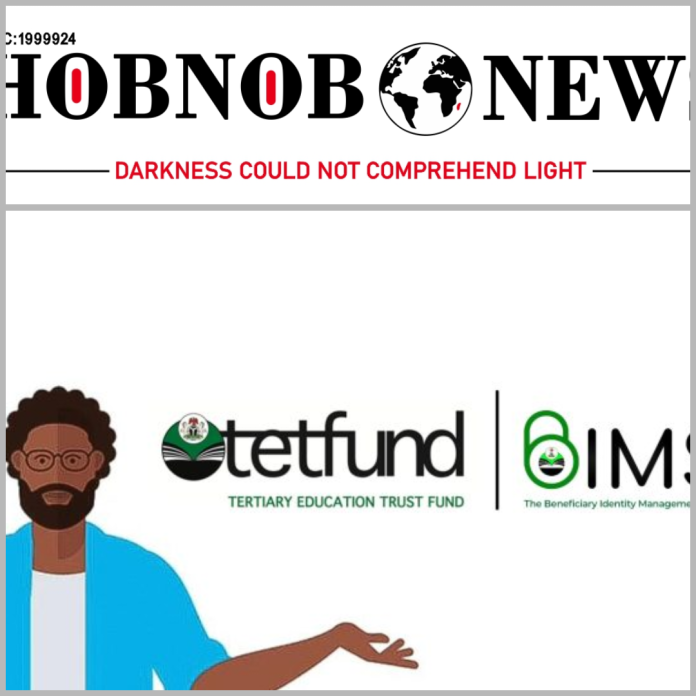In a bid to revolutionize student identification and management processes in Nigeria’s tertiary institutions, the Tertiary Education Trust Fund (TETFUND) has introduced the Beneficiary Identity Management Service (BIMS). This innovative service aims to transform the way students engage with educational services and serves as the key access point for accreditation and authorization to the Tertiary Education Research Applications and Services platform (TERAS).
The introduction of BIMS marks a significant milestone in the Nigerian education sector, with its potential to streamline administrative procedures, enhance security, and enrich the overall student experience. The service offers a range of benefits that will undoubtedly shape the future of tertiary education in the country.
One of the primary advantages of BIMS is its ability to refine enrollment methodologies, making the process more efficient and hassle-free. By digitizing student identification, institutions can eliminate cumbersome paperwork and reduce administrative burdens, allowing for a smoother registration process.
Enhanced data security is another critical aspect of BIMS. With the integration of this service, student information will be securely stored and accessed through a centralized database. This not only safeguards sensitive data but also ensures compliance with data protection regulations. The improved data security measures will provide peace of mind to both students and educational institutions.
BIMS also promises tailored learning experiences for students. By gathering and analyzing student data, the system can offer personalized educational services, such as recommending relevant courses, providing targeted educational resources, and facilitating individualized support. This customization is expected to significantly enhance the learning journey of each student, leading to improved academic performance and satisfaction levels.
Moreover, BIMS facilitates enhanced liaison between students and educational entities. Through a centralized platform, students can easily connect with various educational stakeholders, including faculty members, administrative staff, and institutional authorities. This streamlined communication channel will foster collaboration and engagement, creating a more cohesive and supportive educational environment.
The integration of BIMS within TERAS has created a holistic service ecosystem that benefits not only students but also institutions and faculty members. This comprehensive system allows for efficient management and monitoring of student progress, making it easier for institutions to track academic achievements, identify areas for improvement, and provide appropriate support.
With the introduction of BIMS, TETFUND is spearheading a transformative change in Nigeria’s tertiary education sector. By embracing digital innovation and leveraging technology to streamline processes, enhance security, and provide personalized experiences, the service is poised to elevate the standard of education in the country. As students and institutions adapt to this new system, it is expected to drive significant improvements in management efficiency, student satisfaction, and overall educational outcomes.
the launch of the Beneficiary Identity Management Service marks a significant stride towards a more efficient, secure, and student-centered tertiary education system in Nigeria. With refined enrollment methodologies, enhanced data security, tailored learning experiences, and improved liaison between students and educational entities, BIMS is set to revolutionize the way students engage with educational services. Its integration within TERAS creates a comprehensive service ecosystem that benefits institutions, faculty, and students alike, paving the way for a brighter future in Nigerian higher education.

